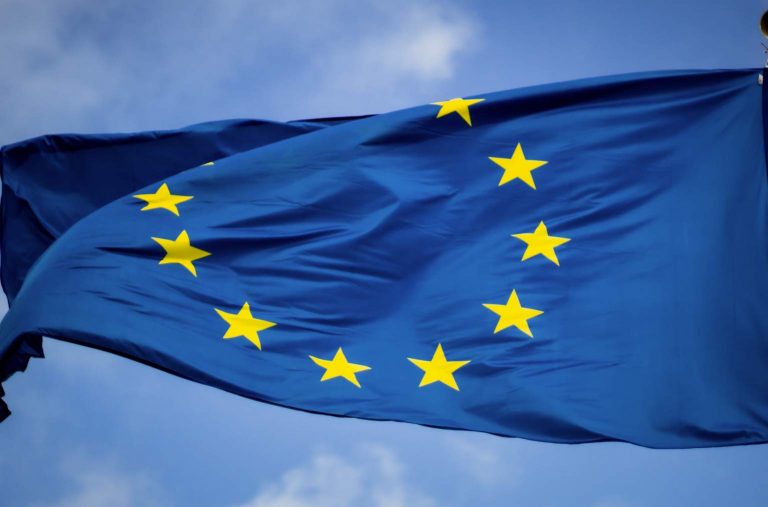
European Struggles Overlooked
Discussion and Analysis by Charles Porter:
Many market commentators are attributing last week’s bullish Euro, 1.17s to mid-1.19s against the Dollar, to a reduction in political risk within Germany and Ireland. This view appears unfounded both in terms of pricing action and sentiment. In a moment of madness, analysts have managed to convince themselves that a minor abatement of what is a deeply threatening and pervasive political risk within two Eurozone states, is enough to cause the raging Euro. The implications of this view are non-trivial. Ultimately, erroneous diagnoses of the Euro could lead to a rapid correction of its strength. Sterling has made gains this morning, correcting last week’s losses against the Euro and strengthening its advance on the Dollar.
Sterling Briefing: No News it Good News
Speaking to an audience at the London School of Economics, Bank of England Monetary Policy Committee member, Dr. Ben Broadbent, based his outlook for interest rates upon the disparity between markets and the public. Specifically, Dr. Broadbent isolated considerable public and household confidence and satisfaction with Brexit against the market’s concern and vacation of uncertain Sterling. I believe this evaluation was correct and meaningful. Markets have generated such a run on the Pound Sterling that we have entered into an environment in which no news really is good news. The support within Sterling markets this morning is, therefore, most likely down to a rather quiet weekend on the Brexit front.
In a world of algorithmic trading, information is critical – in fact, some algorithms will even be based upon the density of a key word in the news. Perhaps, a profitable strategy at the Macro level would be to do just the opposite – if no one’s talking about Brexit for once, the Pound may get some support!
Looking ahead, each day closer to December’s critical EU Council meeting will be a hurdle for Sterling.
Euro Briefing: European Struggles Overlooked
The Euro was weakened considerably earlier last week by the breakdown of coalition talks in Germany. Just before midnight on Sunday 19th November, the Free Democratic Party (FDP) ended month-long talks with the CDU’s Angela Merkel. Seen as a mild political crisis in Germany, the development meant that the German polity, which has been without effective leadership for over two months, had little prospect of forming a coalition within the Bundestag. The conclusion was so bleak because the Social Democratic Party (SPD), the previous member of the Grand Coalition and one of Merkel’s two last hopes, had already comprehensively ruled out another grand coalition. However, Martin Schulz’s SPD did agree to hold talks; a political transformation that has been recognised for changing the Euro’s fortune. Simultaneously, the probability for a general election in Ireland amidst political tumult has apparently resided. With concession building, Varadkar’s minority government is said to be mildly more secure, although critical.
In both scenarios, I argue that the political risk remains immense. In Ireland, days of talks have flourished into zero progress. If anything, the peppering of the opposition with concessions demonstrates how desperate the incumbent party is, exacerbating the probability of an enduring impasse.
Similarly in Germany, the previously concrete position of Schulz’s SPD to not consider another grand coalition with Merkel should highlight to investors the fragility of the talks. Schulz’s previous unbending aversion to another grand coalition should indicate the potential cost to Merkel for attempting to achieve one. The weak bargaining position of Merkel’s CDU, facing another election, makes talks more unstable.
Dollar Briefing: Straggler
Last week was remarkably unfavourable for the Dollar. I ask you to question the relative cost of an inhibition to Trump’s Tax Bill and mild revisions to monetary policy forward guidance, versus total political impasse, both in Ireland and Germany. Admittedly, the single currency creates de facto risk sharing, allowing the idiosyncrasies of one nation to not spill over at the level of the currency. However, it’s simply not enough.
The Dollar, therefore, has once again become undervalued in the short run. This may explain the mild correction from week-end that we have seen this morning. Against the Euro, it appears the pricing action is only to test 1.20 once again and less to do with the underlying strength of the relative currencies. Looking ahead, Fed Chair nominee Jay Powell will appear in front of the Senate committee on Wednesday. The Fed’s current guidance is discounted by Yellen’s imminent withdrawal, making the event critical.
Click Here to Subscribe to the SGM-FX Daily Newsletter
Related Insights

Daily Brief – Poland
Poland June 2025 will go down as a milestone for the energy sector in Poland as it was the first month that renewable energy overtook fossil fuels as a proportion of Poland’s total energy requirements. Poland is one of the highest emitting countries only behind China, Kuwait, South Africa, and Kazakhstan and despite coal consumption […]

Daily Brief – Sterling
Sterling No sooner had the financial press written that Sterling was on the skids due to the Chancellor being on the way out, than PM Starmer woke up to the need for some TLC for his beleaguered Chancellor and executed a handbrake turn to administer some gruesome bedside cheer to the apparently on life support […]

Daily Brief – EU Inflation
EU Inflation With the ECB annual symposium meeting in sunny Sintra, Portugal, inflation is very much on President Lagarde’s mind ; that is because it is showing signs of rising with the monthly inflation rate showing an increase of 0.3% and that presages a break above the target 2% rate just as she and her colleagues […]


 Humphrey Percy
Humphrey Percy